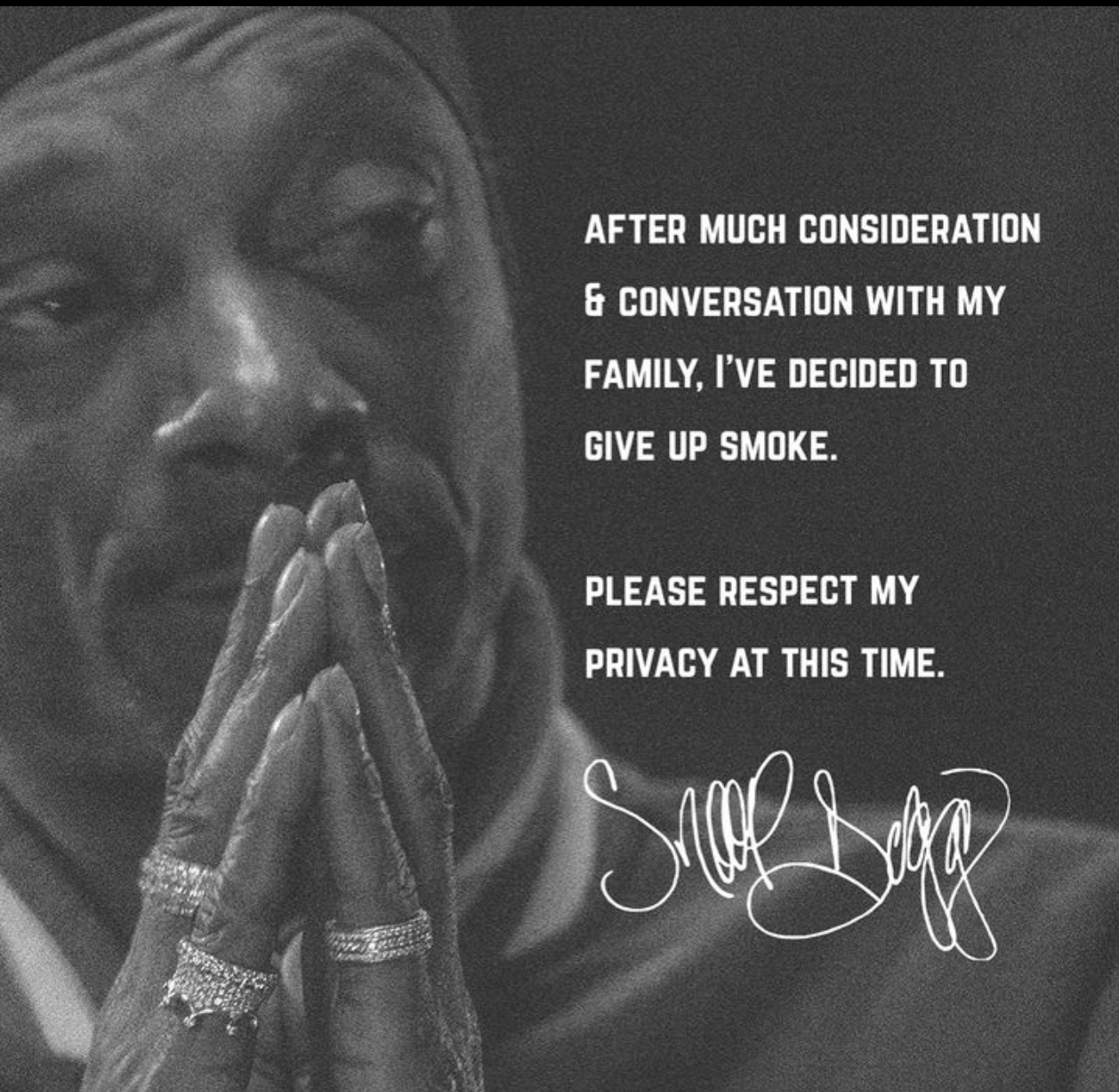Snoop Dogg is toying with your trust
Social media means anyone can claim anything, and strong opinions spread further and faster than anything. Truth is irrelevant.
Snoop Dogg made a sombre announcement on Instagram yesterday: “After much consideration and conversation with my family, I’ve decided to give up smoke. Please respect my privacy at this time.”
‘Smoke’ is, of course, marijuana, the herb on which Snoop has blazed an empire. Thanks to a few dozen weed anthems, countless public proclamations of his prodigious intake, and his own line of cannabis and cannabis-related products, Snoop’s perma-baked image is so intertwined with weed that this declaration made international news immediately after being posted.



from my contacts in LA, apparently its a health scare issue.